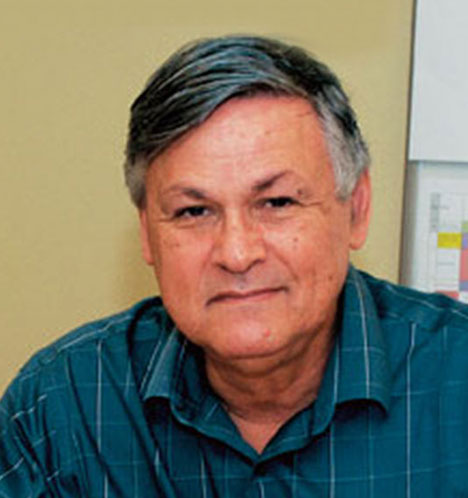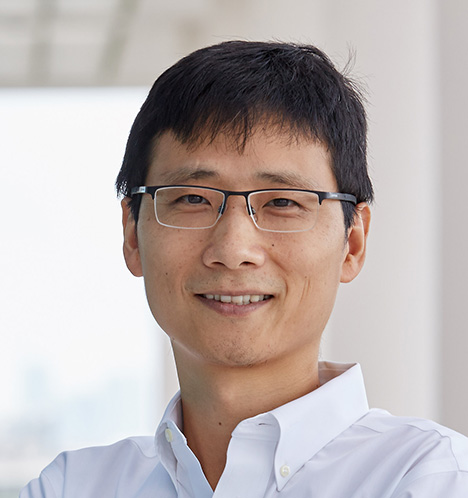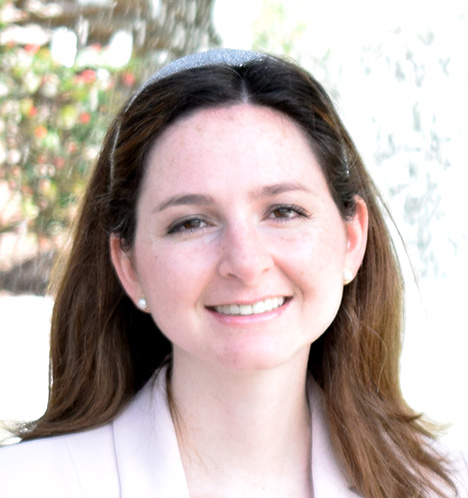
Walter G. Secada
305-284-2102
Office: Max Orovitz Building, 333A
Students who select a specialization in STEM develop expertise in designing and conducting research that advances scientific knowledge about STEM teaching and learning, taking into consideration paramount issues of language, culture, gender, student exceptionality, ethnicity, and economic disparities. TAL faculty collaborate with faculty in other UM academic units, including the College of Engineering, College of Arts and Sciences, School of Communication, and Rosenstiel School of Marine and Atmospheric Science, as well as schools and community STEM organizations within and beyond Miami-Dade County.



Professor Walter G. Secada is a graduate of Miami’s Curley High School. He left Southeast Florida to earn a BA in philosophy (magna cum laude) from the University of Notre Dame, an MS in mathematics and Ph.D. in education, both from Northwestern University. He is Vice Dean of the School of Education and Human Development and Vice Chair of the University’s Social and Behavioral Sciences Institutional Review Board (IRB). Secada’s scholarly interests include issues of student diversity and equity in education, how people learn across the various STEM fields, curriculum reform, school restructuring, bilingualism and the education of non-dominant-language learners, and assessment. Over the past ten years, he has collaborated with colleagues from Florida State University on two large-scale randomized-control-trials and a follow-up to the original RCT studying the impacts of a professional development program that is known as Cognitively Guided Instruction. His research contrasts CGI and traditional classrooms in terms of mathematics-curriculum enactment and teaching practices; and also, it incorporates issues of equity within the PD. Secada continues to study how the language features of mathematics may provide challenges and affordances to late-elementary and middle-school students who are learning mathematics and who range from English learners to fully proficient in English. A fluent speaker of and literate in Spanish, he is analyzing a series of videotapes where high-school algebra is taught bilingually in terms of teacher practices and language-based math-classroom participatory structures. Secada has provided consultative assistance to the Peruvian Ministry of Education; been interviewed on Telemundo and Univision; appeared on Oppenheimer Presenta; been a Senior Fulbright Fellow to la Universidad San Pablo in Arequipa, Peru; and been awarded an honorary professorship by Universidad La Salle also in Arequipa. Secada has presented at major conferences throughout the United States and in Chile, China, England, Germany, Greece, Norway, Peru, South Africa, Taiwan, and Thailand. He is a fellow of the American Educational Research Association (AERA), a lifetime member of the National Association for Bilingual Education (NABE), and a longstanding member of the National Council of Teachers of Mathematics.
Ji Shen is working on technology-enhanced STEM learning environments, interdisciplinary and integrated learning, modeling-based instruction, and alternative assessments in STEM education. As a native Chinese speaker, he is also interested in issues related to international STEM education. His work has been funded by the National Science Foundation. Dr. Shen holds a doctorate in Physics from Washington University in St. Louis. Prior to joining the University of Miami, Dr. Shen was a postdoctoral researcher at the University of California, Berkeley, and an assistant professor at the University of Georgia.
As a Learning Scientist, Dr. Kahn looks at how to broaden participation in interdisciplinary, technology-rich activities to support youth learning across community settings, including museums, libraries, and cultural-heritage sites. Her current research qualitatively explores how youth and families critically engage with large-scale data and data visualization tools to connect personal, local experiences with global social-scientific issues. Dr. Kahn teaches courses on qualitative research methods, including video analysis; theories of learning; and the design of informal learning environments. Dr. Kahn’s current collaborations include projects to support storytelling with data and explorations of how youth and families learn together in informal STEM contexts. Dr. Kahn earned her doctorate from Vanderbilt University’s Peabody College.
TAL 774: Research on Learning in STEM TAL 776: Assessment in STEM Education TAL 775: STEM Curriculum
Overview of research on student learning, reasoning, problem solving, and sense making; the study of learning in STEM classrooms.
Classroom based assessment, testing for high stakes and other purposes, national and international comparisons in mathematics and science.
Study of STEM curricula and the competing forces that shape them, including standards documents, state and national policy, conceptions of the disciplines, modern and postmodern analyses of curriculum theory.
Ji Shen Graduate Studies OfficeAdmission Inquiries (STEM)
Professor
Merrick 324B
305-284-4970
j.shen@miami.eduApplication Process Questions
305-284-2167
soegradadmissions@miami.edu